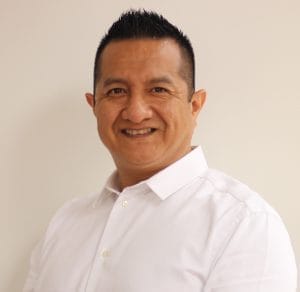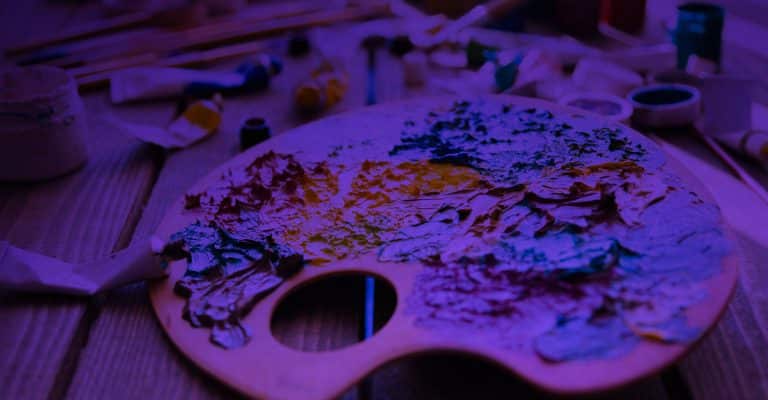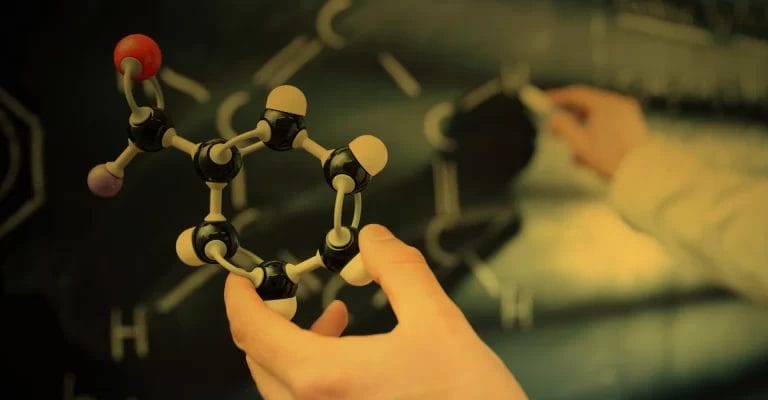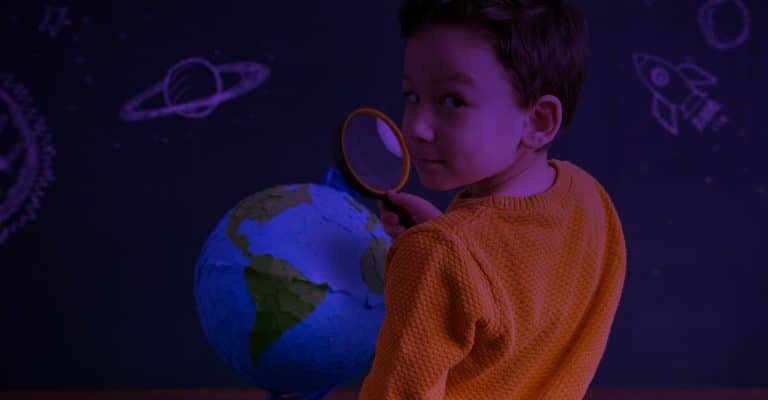- RESEARCHDistance Learning at AIU is enhanced by vast academic resources and innovative technologies build into the Virtual Campus: Hundreds of self-paced courses with video lectures and step by step lessons, thousands of optional assignments, 140,000 e-books, the Social Media & Networking platform allowing collaboration/chat/communications between students, and MYAIU develop students holistically in 11 areas beyond just academics.
- PROGRAMS OFFERED
- Areas of Study
- Courses and Curriculum
- Open Courses
- Register for a Program
- Certificate Program
-
Associate program
- Associate in Actuarial Science
- Associate in Addiction Counseling
- Associate in Agriculture Food And Resources
- Associate in Animal Science
- Associate in Anti Terrorism Security
- Associate in Behavior Analysis In Special Education
- Associate in Bioethics
- Associate in Biosystems
- Associate in Blockchain Technology & Digital Currency
- Associate in Business Communication
- Associate in Business Management
- Associate in Chemistry
- Associate in Climatology
- Associate in Cloud Computing
- Associate in Computer Engineering
- Associate in Computer Programming
- Associate in Computer Science
- Associate in Criminal Justice
- Associate in Culinary Arts
- Associate in Cultural Theological Communication
- Associate in Cybersecurity And Hacking
- Associate in Data Communication And Networking
- Associate in Database Administrator
- Associate in Early Childhood Education
- Associate in Ecotechnology
- Associate in Ecotourism
- Associate in Education
- Associate in Educational Technology
- Associate in Electric Vehicle Engineering
- Associate in Electrochemical Engineering
- Associate in Electronic Engineering
- Associate in English Literature
- Associate in Environmental Science
- Associate in eVTOL Engineering
- Associate in Fashion Design
- Associate in Fine Arts
- Associate in Foreign Trade
- Associate in Genetic Engineering
- Associate in Geography
- Associate in Geology
- Associate in Geophysical Sciences
- Associate in Graphic Design
- Associate in Health Sciences
- Associate in History
- Associate in Human Resources
- Associate in Integrated Water Management
- Associate in International Finance
- Associate in International Marketing
- Associate in Islamic Studies
- Associate in Kinesiology And Physiotherapy
- Associate in Library technology
- Associate in Linguistics
- Associate in Management
- Associate in Management Information Systems
- Associate in Maritime Management
- Associate in Metallurgy
- Associate in Micro and Multimode Grid Design
- Associate in Modern Power and Energy Systems
- Associate in Multimedia Design and Digital Art
- Associate in Nutrition
- Associate in Oil Gas And Energy Engineering
- Associate in Operations Management
- Associate in Optoelectronic Systems
- Associate in Organizational Development
- Associate in Organizational Diversity
- Associate in Pedagogical Training For Professionals
- Associate in Physical Culture And Sports
- Associate in Physics
- Associate in Public Health
- Associate in Quantum Computing Technology
- Associate in Radio And Television Production
- Associate in Scenography
- Associate in Social Media Marketing
- Associate in Sociology
- Associate in Sports Marketing
- Associate in Sports Psychology
- Associate in Sustainable Design and Construction
- Associate in Sustainable Materials Science
- Associate in Sustainable Natural Resources Management
- Associate in Sustainable Tourism
- Associate in Synthetic Biology
- Associate in Virtual Archival Science
- Associate of Adult Education
- Associate of Advertising
- Associate of Agriculture
- Associate of American History
- Associate of Biology
- Associate of Chemical Engineering
- Associate of Civil Engineering
- Associate of Communications
- Associate of Construction Management
- Associate of Economics
- Associate of Educational Administration
- Associate of Electrical Engineering
- Associate of Finance
- Associate of Healthcare Administration
- Associate of Human Resources Management
- Associate of Humanities
- Associate of Hydrology
- Associate of Industrial Engineering
- Associate of Information Systems
- Associate of Information Technology
- Associate of Interior Design
- Associate of International Relations
- Associate of Journalism
- Associate of Legal Studies
- Associate of Logistics
- Associate of Marketing
- Associate of Mass Media and Communication
- Associate of Mathematics
- Associate of Mechanical Engineering
- Associate of Mining Engineering
- Associate of Music
- Associate of Nutrition Science
- Associate of Philosophy
- Associate of Physical Education
- Associate of Political Science
- Associate of Project Management
- Associate of Psychology
- Associate of Renewable Energy
- Associate of Software Engineering
- Associate of Sport Science
- Associate of Statistics
- Associate of Strategic Management
- Associate of Technical Writing
- Associate of Telecommunications
- Associate of Theater
- Associate of Theology
- Associate of Tourism Planning and Development
- Associate of Travel and Tourism
- Associate of Unmanned Areal Systems Engineering
- Associates in Artificial Intelligence
- Associates in Engineering Systems
- Associates in Physical Anthropology
- Associates in Social Sciences
- Associates in Sociocultural Anthropology
- Associates in Systems Engineering
- Associates of Accounting
- Associates of Anthropology
- Associates of Archeology
- Associates of Architecture
- Associates of Art History
- Associates of Banking and Finance
- Associates of Business Administration
- Associates of Public Administration
- Associates of Science
- Associates of Urban Planning
- Associates of Visual and Performing Arts
- Micro and Multimode Grid Design
-
Bachelor Program
- Bachelor in Data Communication and Networking
- Bachelor in Actuarial Science
- Bachelor in Addiction Counseling
- Bachelor in Agriculture, Food and Resources
- Bachelor in Animal Science
- Bachelor in Anthropology
- Bachelor in Anti Terrorism Security
- Bachelor in Artificial Intelligence
- Bachelor in Arts in Cultural Theological Communication
- Bachelor in Autonomous Vehicle Technology
- Bachelor in Bachelor of Bioethics (BA)
- Bachelor in Behavior Analysis in Special Education
- Bachelor in Bibliotechnology
- Bachelor in Biosystems
- Bachelor in Blockchain Technology & Digital Currency
- Bachelor in Business Communication
- Bachelor in Business Management
- Bachelor in Chemistry
- Bachelor in Cloud Computing
- Bachelor in Computer Science
- Bachelor in Criminal Justice
- Bachelor in Culinary Arts
- Bachelor in Cybersecurity and Hacking
- Bachelor in Database Administrator (BS)
- Bachelor in Ecotechnology
- Bachelor in Ecotourism
- Bachelor in Education (B.Ed, BS)
- Bachelor in Educational Technology
- Bachelor in Electric Vehicle Engineering
- Bachelor in Electrochemical Engineering
- Bachelor in English Literature
- Bachelor in eVTOL Engineering
- Bachelor in Fashion Design (BA)
- Bachelor in Fine Arts
- Bachelor in Foreign Trade
- Bachelor in Genetic Engineering
- Bachelor in Geology
- Bachelor in Geophysical Sciences
- Bachelor in Graphic Design
- Bachelor in Health Sciences
- Bachelor in Integrated Water Management
- Bachelor in International Finance
- Bachelor in International Marketing
- Bachelor in Islamic Studies
- Bachelor in Kinesiology and Physiotherapy
- Bachelor in Linguistics
- Bachelor in Management
- Bachelor in Metallurgy
- Bachelor in Micro and Multimode Grid Design
- Bachelor in Modern Power and Energy Systems
- Bachelor in Multimedia Design and Digital Art
- Bachelor in Nutrigenetics
- Bachelor in Operations Management (BA)
- Bachelor in Optoelectronic Systems
- Bachelor in Organizational Development
- Bachelor in Organizational Diversity
- Bachelor in Pedagogical Training for Professionals
- Bachelor in Physical Anthropology
- Bachelor in Physical Culture And Sports
- Bachelor in Public Relations
- Bachelor in Quantum Computing Technology
- Bachelor in Radio And Television Production
- Bachelor in Scenography
- Bachelor in Social Media Marketing
- Bachelor in Social Sciences
- Bachelor in Sociocultural Anthropology
- Bachelor in Sport Management
- Bachelor in Sports Marketing
- Bachelor in Sports Psychology
- Bachelor in Sustainable Design and Construction
- Bachelor in Sustainable Materials Science
- Bachelor in Sustainable Natural Resources Management
- Bachelor in Sustainable Tourism
- Bachelor in Synthetic Biology
- Bachelor in Virtual Archival Science
- Bachelor of Adult Education
- Bachelor of Advertising
- Bachelor of Animation
- Bachelor of Art History
- Bachelor of Biohacking and Nutrigenomics
- Bachelor of Educational Administration
- Bachelor of Healthcare Administration
- Bachelor of Human Resources Management
- Bachelor of Humanities
- Bachelor of Hydrology
- Bachelor of Information Technology
- Bachelor of Journalism
- Bachelor of Mass Media and Communication
- Bachelor of Mathematics
- Bachelor of Philosophy
- Bachelor of Physical Education
- Bachelor of Project Management
- Bachelor of Public Administration
- Bachelor of Software Engineering
- Bachelor of Sport Science
- Bachelor of Sports Science
- Bachelor of Statistics
- Bachelor of Strategic Management
- Bachelor of Technical Writing
- Bachelor of Theater
- Bachelor of Theology
- Bachelor of Tourism Planning and Development
- Bachelor of Travel and Tourism
- Bachelor of Unmanned Areal Systems Engineering
- Bachelor of Urban Planning
- Bachelor of Visual and Performing Arts
- Bachelor of Web Design
- Bachelors in Energy Storage and Battery Technology
- Bachelors in Accounting
- Bachelors in Accounting & Finance
- Bachelors in Agronomy Engineering
- Bachelors in Architecture
- Bachelors in Automotive Engineering
- Bachelors in Banking and Finance
- Bachelors in Biology
- Bachelors in Business Administration
- Bachelors in Chemical Engineering
- Bachelors in Civil Engineering
- Bachelors in Communications
- Bachelors in Computer Engineering
- Bachelors in Criminal Justice
- Bachelors in Early Childhood Education
- Bachelors in Economics
- Bachelors in Electrical Engineering
- Bachelors in Electronic Engineering
- Bachelors in Engineering
- Bachelors in Environmental Science
- Bachelors in Finance
- Bachelors in Finance and Banking
- Bachelors in History
- Bachelors in Hospitality Management
- Bachelors in Human Resources
- Bachelors in Industrial Engineering
- Bachelors in Information Systems
- Bachelors in Interior Design
- Bachelors in International Business
- Bachelors in International Relations
- Bachelors in Legal Studies
- Bachelors in Logistics
- Bachelors in Marketing
- Bachelors in Mechanical Engineering
- Bachelors in Mining Engineering
- Bachelors in Music
- Bachelors in Nutrition
- Bachelors in Oil Gas and Energy Engineering
- Bachelors in Physics
- Bachelors in Political Science
- Bachelors in Psychology
- Bachelors in Public Health
- Bachelors in Renewable Energy
- Bachelors in Sociology
- Bachelors in Systems Engineering
- Bachelors in Telecommunications
- Bachelors in Zoology
-
Doctorate Program
- DBA – Doctor of Business Administration
- Doctor | in Actuarial Science
- Doctor | in Agriculture Food And Resources
- Doctor | in Animal Science
- Doctor | in Biosystems
- Doctor | in Cultural Theological Communication
- Doctor | in Cybersecurity And Hacking
- Doctor | in Early Childhood Education
- Doctor | in Ecotechnology
- Doctor | In Ecotourism
- Doctor | In Educational Technology
- Doctor | In Electronic Engineering
- Doctor | In Foreign Trade
- Doctor | of Biology (PhD)
- Doctor in Addiction Counseling
- Doctor in Behavior Analysis In Special Education
- Doctor in Bibliotechnology
- Doctor in Business Management
- Doctor in Data Communication And Networking
- Doctor of Adult Education
- Doctor of Agriculture
- Doctor of American History
- Doctor of Animation
- Doctor of Anthropology
- Doctor of Archaeology
- Doctor of Architecture (Ph.D.)
- Doctor of Art History
- Doctor of Artificial Intelligence
- Doctor of Autonomous Vehicle Technology
- Doctor of Biohacking and Nutrigenomics
- Doctor of Business Management (DBM)
- Doctor of Civil Engineering (D.Sc)
- Doctor of Cloud Computing
- Doctor of Economics (PhD)
- Doctor of Educational Administration (PhD)
- Doctor of Electric Vehicle Engineering
- Doctor of Electrical Engineering (D.Sc, PhD)
- Doctor of Electrochemical Engineering
- Doctor of Engineering Systems (D.Sc)
- Doctor of eVTOL Engineering
- Doctor of Finance (PhD)
- Doctor of Humanities
- Doctor of Hydrology
- Doctor of Industrial Engineering (D.Sc)
- Doctor of International Relations (D.Sc)
- Doctor of Legal Studies (PhD)
- Doctor of Logistics
- Doctor of Mass Media and Communication
- Doctor of Mechanical Engineering (D.Sc)
- Doctor of Micro and Multimode Grid Design
- Doctor of Mining Engineering
- Doctor of Music
- Doctor of Nutrition Science
- Doctor of Optoelectronic Systems
- Doctor of Project Management (PhD)
- Doctor of Public Administration
- Doctor of Public Health (PhD, D.Sc)
- Doctor of Quantum Computing
- Doctor of Renewable Energy
- Doctor of Sociology (PhD, D.Sc)
- Doctor of Software Engineering
- Doctor of Sport Management
- Doctor of Sport Science
- Doctor of Statistics
- Doctor of Technical Writing
- Doctor of Telecommunications (D.Sc)
- Doctor of Theater
- Doctor of Tourism Planning and Development
- Doctor of Travel and Tourism
- Doctor of Unmanned Aerial Systems Engineering
- Doctor of Visual and Performing Arts
- Doctor of Web Design
- Doctoral Degree Programs
- Doctoral in International Finance
- Doctorate in Accounting
- Doctorate in Actuarial Science
- Doctorate in Adult Counseling
- Doctorate in Advertising
- Doctorate in Agriculture Food And Resources
- Doctorate in Animal Science
- Doctorate in Anti Terrorism Security
- Doctorate in Behavior Analysis In Special Education
- Doctorate in Bibliotechnology
- Doctorate in Bioethics
- Doctorate in Biosystems
- Doctorate in Business Administration (DBA, PhD)
- Doctorate in Business Communication
- Doctorate in Business Management
- Doctorate in Chemical Engineering (D.Sc)
- Doctorate in Chemistry
- Doctorate in Clinical Nutrition
- Doctorate in Communication Online (D.Sc)
- Doctorate in Computer Engineering
- Doctorate in Computer Science
- Doctorate in Conflict Resolution & Peace Building
- Doctorate in Criminal Justice
- Doctorate in Culinary Arts
- Doctorate in Cultural Theological Communication
- Doctorate in Cyber Security & Hacking
- Doctorate in Data Communication And Networking
- Doctorate in Digital Marketing
- Doctorate in Early Childhood Education
- Doctorate in Ecotechnology
- Doctorate in Ecotourism
- Doctorate in Education
- Doctorate in Educational Technology
- Doctorate in Electronic Engineering
- Doctorate in Environmental Science
- Doctorate in Fashion Design
- Doctorate in Fine Arts
- Doctorate in Foreign Trade
- Doctorate in Genetic Engineering
- Doctorate in Geophysical Sciences
- Doctorate in Global Health
- Doctorate in Health Sciences
- Doctorate in Healthcare Administration Programs (PhD)
- Doctorate in Hospital Administration
- Doctorate in Human Resource Management (PhD)
- Doctorate in Human Resources
- Doctorate in Information Systems (D.Sc)
- Doctorate in Information Technology (D.Sc)
- Doctorate in Integrated Water Management
- Doctorate in Interior Design (PhD)
- Doctorate in International Marketing
- Doctorate in International Relations
- Doctorate in Islamic Studies
- Doctorate in Journalism (PhD)
- Doctorate in Kinesiology & Physiotherapy
- Doctorate in Linguistics
- Doctorate in Management
- Doctorate in Maritime Management
- Doctorate in Marketing (PhD)
- Doctorate in Mathematics
- Doctorate in Metallurgy
- Doctorate in Modern Power and Energy Systems
- Doctorate in Multimedia Design and Digital Art
- Doctorate in Oil Gas And Energy Engineering
- Doctorate in Organizational Development
- Doctorate in Organizational Diversity
- Doctorate in Pedagogical Training For Professionals
- Doctorate in Physical Anthropology
- Doctorate in Physical Culture And Sports
- Doctorate in Physical Education (D.Sc)
- Doctorate in Political Science
- Doctorate in Psychology (PhD, DPsy)
- Doctorate in Radio And Television Production
- Doctorate in Scenography
- Doctorate in Security Management
- Doctorate in Social Media Marketing
- Doctorate in Sociocultural Anthropology
- Doctorate in Sports Management
- Doctorate in Sports Marketing
- Doctorate in Sports Psychology
- Doctorate in Strategic Leadership
- Doctorate in Strategic Management
- Doctorate in Sustainable Design and Construction
- Doctorate in Sustainable Materials Science
- Doctorate in Sustainable Natural Resources Management
- Doctorate in Sustainable Tourism
- Doctorate in Synthetic Biology
- Doctorate in Virtual Archival Science
- Doctorate of Theology
- DS – Doctorate in Science
- Online Doctorate in Health Administration
- Online Doctorate in Hospitality
- Online Doctorate in Philosophy
- Postdoctoral in Bioethics
- School of Social and Human Studies
-
Master Program
- Master in Actuarial Science
- Master in Addiction Counseling
- Master in Agriculture Food And Resources
- Master in Animal Science
- Master in Anti Terrorism Security
- Master in Autonomous Vehicle Technology
- Master in Behavior Analysis In Special Education
- Master in Bibliotechnology
- Master in Bioethics
- Master in Biosystems
- Master in Blockchain Technology and Digital Currency
- Master in Business Communication
- Master in Business Management
- Master in Chemistry
- Master in Climatology
- Master in Cloud Computing
- Master in Computer Programming
- Master in Computer Science
- Master in Criminal Justice
- Master in Culinary Arts
- Master in Cultural Theological Communication
- Master in Cybersecurity And Hacking
- Master in Data Communication And Networking
- Master in Database Administrator
- Master in Early Childhood Education
- Master in Ecotechnology
- Master in Ecotourism
- Master in Educational Technology
- Master in Electric Vehicle Engineering
- Master in Electronic Engineering
- Master in Energy Storage and Battery Technology
- Master in Engineering Systems (MS)
- Master in Environmental Science
- Master in eVTOL Engineering
- Master in Fashion Design
- Master in Fine Arts
- Master in Foreign Trade
- Master in Geography
- Master in Geophysical Sciences
- Master in Graphic Design
- Master in Health Sciences
- Master in History
- Master in Industrial Engineering
- Master in Integrated Water Management
- Master in International Finance
- Master in International Marketing
- Master in Islamic Studies
- Master in Kinesiology And Physiotherapy
- Master in Linguistics
- Master in Management
- Master in Management Information Systems
- Master in Mass Media and Communication
- Master in Metallurgy
- Master in Micro and Multimode Grid Design
- Master in Microbiology
- Master in Modern Power and Energy Systems
- Master in Multimedia Design and Digital Art
- Master in Nutritional Science
- Master in Oil Gas And Energy Engineering
- Master in Organizational Development
- Master in Organizational Diversity
- Master in Pedagogical Training For Professionals
- Master in Philosophy
- Master in Physical Anthropology
- Master in Physical Culture And Sports
- Master in Political Science
- Master in Public Administration (MA)
- Master in Quantum Computing
- Master in Radio And Television Production
- Master in Scenography
- Master in Social Media Marketing
- Master in Social Sciences
- Master in Sociocultural Anthropology
- Master in Sociology (MA, MS)
- Master in Software Engineering
- Master in Sport Management
- Master in Sport Science
- Master in Sports Marketing
- Master in Sports Psychology
- Master in Statistics
- Master in Strategic Management
- Master in Sustainable Design and Construction
- Master in Sustainable Materials Science
- Master in Sustainable Natural Resources Management
- Master in Sustainable Tourism
- Master in Synthetic Biology
- Master in Technical Writing
- Master in Theater
- Master in Theology
- Master in Unmanned Aerial Systems Engineering (UAV and Drone Technology)
- Master in Virtual Archival Science
- Master of Adult Education
- Master of Advertising (MS, MBA)
- Master of Agriculture (MS)
- Master of American History
- Master of Animation
- Master of Anthropology (MA)
- Master of Archeology (MA)
- Master of Architecture (MS)
- Master of Art History (MA)
- Master of Artificial Intelligence
- Master of Banking and Finance (MA)
- Master of Biohacking and Nutrigenomics
- Master of Biology (MS)
- Master of Business Management (MS, MBM)
- Master of Chemical Engineering (MS)
- Master of Communications (MA, MS)
- Master of Computer Engineering
- Master of Construction Management
- Master of Economics (MS)
- Master of Human Resources Management (MHRM)
- Master of Humanities (MA)
- Master of Hydrology (MS)
- Master of Information Technology (MS, MIT)
- Master of Interior Design (MA)
- Master of International Relations (MS)
- Master of Journalism (MA, MJ)
- Master of Legal Studies (MA)
- Master of Logistics (MA)
- Master of Marketing (MS, MBA, MPA)
- Master of Mathematics (MS)
- Master of Mechanical Engineering (MS)
- Master of Mining Engineering (MS)
- Master of Music (MA)
- Master of Nutrition Science
- Master of Physical Education (MS)
- Master of Renewable Energy (MS)
- Master of Science in Educational Administration (MS)
- Master of Science in Healthcare Administration (MS)
- Master of Telecommunications (MS, M.TEL.)
- Master of Tourism Planning and Development
- Master of Travel and Tourism
- Master of Urban Planning
- Master of Visual and Performing Arts
- Master of Web Design
- Masters in Accounting
- Masters in Business Administration
- Masters in Civil Engineering
- Masters in Education
- Masters in Electrical Engineering
- Masters in Finance
- Masters in Human Resources
- Masters in Information Systems
- Masters in International Relations
- Masters in Project Management
- Masters in Psychology
- Masters in Public Health
-
Postdoctoral Program
- Postdoctoral in Actuarial Science
- Postdoctoral in Addiction Counseling
- Postdoctoral in Animal Science
- Postdoctoral in Anti Terrorism Security
- Postdoctoral in Autonomous Vehicle Technology
- Postdoctoral in Behavior Analysis In Special Education
- Postdoctoral in Bibliotechnology
- Postdoctoral in Bioethics
- Postdoctoral in Biohacking and Nutrigenomics
- Postdoctoral in Biosystems
- Postdoctoral in Blockchain Technology and Digital Currency
- Postdoctoral in Business Communication
- Postdoctoral in Business Management
- Postdoctoral in Chemistry
- Postdoctoral in Cloud Computing
- Postdoctoral in Computer Engineering
- Postdoctoral in Computer Science
- Postdoctoral in Criminal Justice
- Postdoctoral in Culinary Arts
- Postdoctoral in Cultural Theological Communication
- Postdoctoral in Cybersecurity And Hacking
- Postdoctoral in Data Communication And Networking
- Postdoctoral in Early Childhood Education
- Postdoctoral in Ecotechnology
- Postdoctoral in Ecotourism
- Postdoctoral in Education
- Postdoctoral in Educational Technology
- Postdoctoral in Electrical Vehicle Engineering
- Postdoctoral in Electrochemical Engineering
- Postdoctoral in Electronic Engineering
- Postdoctoral in Energy Storage and Battery Technology
- Postdoctoral in Engineering Systems
- Postdoctoral in English Literature
- Postdoctoral in Environmental Science
- Postdoctoral in eVTOL Engineering
- Postdoctoral in Fashion Design
- Postdoctoral in Fine Arts
- Postdoctoral in Foreign Trade
- Postdoctoral in Genetic Engineering
- Postdoctoral in Geophysical Sciences
- Postdoctoral in Graphic Design
- Postdoctoral in Health Sciences
- Postdoctoral in Human Resources
- Postdoctoral in Humanities
- Postdoctoral in Integrated Water Management
- Postdoctoral in International Finance
- Postdoctoral in International Marketing
- Postdoctoral in International Relations
- Postdoctoral in Islamic Studies
- Postdoctoral in Journalism
- Postdoctoral in Kinesiology And Physiotherapy
- Postdoctoral in Linguistics
- Postdoctoral in Logistics
- Postdoctoral in Management
- Postdoctoral in Marketing
- Postdoctoral in Mass Communication
- Postdoctoral in Mathematics
- Postdoctoral in Metallurgy
- Postdoctoral in Micro and Multimode Grid Design
- Postdoctoral in Mining Engineering
- Postdoctoral in Modern Power and Energy Systems
- Postdoctoral in Multimedia Design and Digital Art
- Postdoctoral in Music
- Postdoctoral in Nutrigenetics
- Postdoctoral in Nutrition
- Postdoctoral in Oil, Gas and Energy Engineering
- Postdoctoral in Organizational Development
- Postdoctoral in Organizational Diversity
- Postdoctoral in Pedagogical Training For Professionals
- Postdoctoral in Philosophy
- Postdoctoral in Physical Anthropology
- Postdoctoral in Physical Culture And Sports
- Postdoctoral in Political Science
- Postdoctoral in Public Administration
- Postdoctoral in Public Health
- Postdoctoral in Quantum Computing
- Postdoctoral in Radio And Television Production
- Postdoctoral in Social Media Marketing
- Postdoctoral in Social Sciences
- Postdoctoral in Sociocultural Anthropology
- Postdoctoral in Sociology
- Postdoctoral in Software Engineering
- Postdoctoral in Sport Management
- Postdoctoral in Sport Science
- Postdoctoral in Sports Marketing
- Postdoctoral in Sports Psychology
- Postdoctoral in Statistics
- Postdoctoral in Strategic Management
- Postdoctoral in Sustainable Design and Construction
- Postdoctoral in Sustainable Materials Science
- Postdoctoral in Sustainable Natural Resources Management
- Postdoctoral in Sustainable Tourism
- Postdoctoral in Synthetic Biology
- Postdoctoral in Technical Writing
- Postdoctoral in Theater
- Postdoctoral in Theology
- Postdoctoral in Virtual Archival Science
- Postdoctoral of Biology
- Postdoctoral of Industrial Engineering
- Postdoctoral of Information Systems
- Postdoctoral of Legal Studies
- Postdoctoral Research in Accounting
- Postdoctoral Research in Adult Education
- Postdoctoral Research in Advertising
- Postdoctoral Research in Agriculture
- Postdoctoral Research in American History
- Postdoctoral Research in Animation
- Postdoctoral Research in Anthropology
- Postdoctoral Research in Archeology
- Postdoctoral Research in Architecture
- Postdoctoral Research in Art History
- Postdoctoral Research in Artificial Intelligence
- Postdoctoral Research in Banking and Finance
- Postdoctoral Research in Business Administration
- Postdoctoral Research in Business Management
- Postdoctoral Research in Chemical Engineering
- Postdoctoral Research in Civil Engineering
- Postdoctoral Research in Communications
- Postdoctoral Research in Economics
- Postdoctoral Research in Educational Administration
- Postdoctoral Research in Electrical Engineering
- Postdoctoral Research in Finance
- Postdoctoral Research in Healthcare Administration
- Postdoctoral Research in Human Resources Management
- Postdoctoral Research in Information Technology
- Postdoctoral Research in Interior Design
- Postdoctoral Research in International Relations
- Postdoctoral Research in Mechanical Engineering
- Postdoctoral Research in Physical Education
- Postdoctoral Research in Project Management
- Postdoctoral Research in Psychology
- Postdoctoral Research in Renewable Energy
- Postdoctoral Research in Scenography
- Postdoctoral Research in Telecommunications
- Postdoctoral Research in Tourism Planning and Development
- Postdoctoral Research in Travel and Tourism
- Postdoctoral Research in Unmanned Aerial Systems Engineering (UAV and drone technology)
- Postdoctoral Research in Urban Planning
- Postdoctoral Research in Visual and Performing Arts
- Postdoctoral Research in Web Design
- Postdoctoral Research Program
AIU offers a wide range of majors in areas including the Arts, Business, Science, Technology, Social, and Human studies. More than 120 degrees and programs are available for adult learners at the associate’s, bachelor’s, master’s, doctoral and postdoctoral level. - VIRTUAL CAMPUS
Distance Learning at AIU is enhanced by vast academic resources and innovative technologies build into the Virtual Campus: Hundreds of self-paced courses with video lectures and step by step lessons, thousands of optional assignments, 140,000 e-books, the Social Media & Networking platform allowing collaboration/chat/communications between students, and MYAIU develop students holistically in 11 areas beyond just academics.
- ALUMNI
The world is YOUR campus!”, that is the message of AIU’s month magazine Campus Mundi. Hear the voices and see the faces that make up AIU. Campus Mundi brings the world of AIU to you every months with inspirational stories, news and achievements by AIU members from around the world (students and staff are located in over 200 countries).
Doctorate in Fine Arts
School of Science & Engineering
Academic Freedom to Discover Your Purpose
Open Curriculum Design at Atlantic International University
Immerse yourself in the transformative journey offered by our Doctoral Program in Fine Arts. We equip students with vital tools to refine their craftsmanship, fostering aesthetic expression that transcends boundaries. Our program champions individuality, recognizing that each student possesses unique talents and aspirations.
We don’t bind you to a standardized curriculum but instead nurture your distinct path towards artistic brilliance. This is an opportunity for purpose-driven individuals seeking to elevate their lives and make meaningful contributions to the world through artistry and creative excellence. Join us to propel your artistic journey towards national and international recognition in the realm of Fine Arts.
Courses and Topics in Doctorate in Fine Arts
Doctorate in Fine Arts programs offer a diverse range of courses and topics tailored to advance artistic practice, critical thinking, research, and scholarship within the field. These courses aim to deepen artistic practice, critical thinking, and research skills, fostering creative expression while providing a foundation for scholarly contributions to the field of Fine Arts. Students often have the flexibility to tailor their coursework to align with their specific artistic goals and research interests.
Additionally, doctoral programs in Fine Arts often encourage students to engage in residencies, participate in artistic collaborations, attend conferences, and undertake professional development activities relevant to their artistic interests.
Focusing on theoretical modeling and empirical validation, our program instructs students in conducting meticulous research, analyzing financial data, and innovating within the finance domain. The program’s adaptability allows students to specialize in specific fine arts areas or intersecting disciplines, driven by their passions and career goals.
A pivotal element of this doctoral program involves students undertaking original research in their chosen domain, contributing novel insights to the field. Our curriculum epitomizes the extensive and profound learning adventure inherent in a Doctorate in Fine Arts, particularly within an institution like AIU, dedicated to tailored educational journeys and the fusion of interdisciplinary expertise.
- Renaissance through Modern Art
- Sculpture
- Drawing
- Painting
- Photography
- Principles of Design
- Printmaking
- Three-Dimensional Design
- Digital Design
- Contemporary Art
- Modern Art
- Latin American Art
- African Art
- Aspects of Asian Art
- History of Photography
Orientation Courses
AIU’s foundational orientation courses play a vital role in easing entry into the Doctorate in Fine Arts program. They familiarize students with the curriculum, structure, and requirements, fostering a sense of community and collaboration. These sessions focus on refining essential academic skills such as research methodologies, writing, time management, and digital proficiency, providing an early advantage. They also clarify program objectives, anticipated outcomes, and introduce crucial academic support resources and policies, ensuring a seamless academic journey in just 90 words.
- Communication & Investigation (Comprehensive Resume)
- Organization Theory (Portfolio)
- Experiential Learning (Autobiography)
- Academic Evaluation (Questionnaire)
- Fundament of Knowledge (Integration Chart)
- Fundamental Principles I (Philosophy of Education)
- Professional Evaluation (Self Evaluation Matrix)
- Development of Graduate Study (Guarantee of an Academic Degree)
Research Projects in Doctorate in Fine Arts
Research projects within a Doctorate in Fine Arts program are diverse and tailored to advance artistic exploration, critical inquiry, and scholarly contributions. These projects often allow students to pursue in-depth investigations aligned with their artistic interests and academic goals. Also, they culminate in a substantial dissertation, thesis, or artistic portfolio that demonstrates the student’s contribution to the field of Fine Arts, showcasing their originality, creativity, and scholarly rigor.
- Doctoral Dissertation Project
- MBM900 Doctoral Proposal
- MBM902 Doctoral Dissertation (15,000 words)
Publication – As students delve into research methodologies, assess data, and interpret results, they foster critical analytical skills and thinking. This progress augments their ability to comprehend and evaluate intricate information effectively.
Unleashing One’s Creativity to Discover the Artist Within is not Easy So Choose the Right Guidance with AIU’s Doctorate Program
Apply for Admission
Transformative Doctorate Student Journey at AIU
The transformative journey of a Doctorate in Fine Arts student at AIU is an odyssey marked by profound growth, artistic exploration, and scholarly evolution. At the heart of this journey lies a commitment to nurturing individual creativity, fostering critical inquiry, and advancing artistic excellence.
Students embark on a path illuminated by personalized mentorship, empowering them to refine their craft, delve into interdisciplinary dialogues, and push the boundaries of artistic expression. Guided by a faculty of seasoned practitioners and scholars, students navigate a rich tapestry of courses, research endeavors, and collaborative projects, igniting innovation and shaping their artistic vision.
The program serves as a crucible for honing technical expertise, honing conceptual frameworks, and challenging conventional artistic paradigms. Encouraged to explore diverse mediums, experiment with novel techniques, and critically analyze their work, students unearth new dimensions of their creativity.
Through residencies, exhibitions, and scholarly presentations, students not only showcase their artistic prowess but also engage in discourse that enriches the wider artistic community. The fusion of theoretical inquiry with hands-on practice enables them to weave narratives that transcend boundaries, catalyzing societal dialogues and cultural introspection.
This transformative expedition nurtures resilience, adaptability, and a commitment to lifelong learning. As graduates emerge from this journey, they stand not just as accomplished artists but as catalysts for change, equipped to leave an indelible mark on the world of Fine Arts.
Community & Social
AIU’s online program fosters a vibrant and cohesive community, prioritizing an interactive learning atmosphere. Leveraging cutting-edge technologies and collaborative platforms, we cultivate an immersive and connected educational journey. Innovative tools like the Virtual Campus Mobile App, MYAIU, AIULink, and AIUTV serve as digital focal points, nurturing global connections among students, alumni, and faculty.
The Online Doctorate in Fine Arts program at AIU transcend mere academia; it represents a transformative journey and stands as a premier finance doctorate worldwide. Renowned as one of the finest finance doctorate programs globally, this expedition embodies profound exploration of knowledge, innovation, and leadership. It empowers students to envision a more promising and equitable future, not only for themselves but also for education and beyond. This path not only conceives ideas but also confronts challenges with inventive and efficient resolutions.
Contact Us Today!
We understand how busy adults do not have time to go back to school. Now, it’s possible to earn your degree in the comfort of your own home and still have time for yourself and your family. The Admissions office is here to help you, for additional information or to see if you qualify for admissions please contact us. If you are ready to apply please submit your Online Application and paste your resume and any additional comments/questions in the area provided.
Pioneer Plaza
900 Fort Street Mall 905
Honolulu, HI 96813
800-993-0066 (Toll Free in US)
808-924-9567 (Internationally)
808-947-2488 (Fax)
Academic Resources
The AIU Virtual Campus stands at the forefront, providing more than 25 thoughtfully crafted tools that bolster students in their academic and personal progression. Our dedication to state-of-the-art technology is showcased through our Virtual Reality 3D immersive experience, fostering a vibrant communal space that significantly amplifies student involvement, drive, and ingenuity.
At the core of our educational resources are user-friendly tools, notably an expansive online library housing over 260,000 books and 30 million peer-reviewed articles, journals, and publications. Augmenting this wealth of information is a comprehensive database housing over 105,000 academic resources meticulously curated by the AIU community.
These resources are pivotal for individuals undertaking a Doctorate in Fine Arts or similar doctoral programs, serving as cornerstones for their growth and accomplishments. Tailored to diverse academic interests, each tool is meticulously designed to resonate with the unique objectives and ambitions of our students, ensuring they possess the essential resources to actualize their aspirations and achieve success in their program endeavors.
Virtual Campus
Complete assignments online or offline at your convenience with 24/7 access to distance learning through AIU’s Virtual Campus. Step by Step guides including videos, tutorials, live webinars and examples for each course. All materials can be access on all web browsers as well as via AIU's Mobile App which brings all the features of the Virtual Camus to your Mobile Device.
My AIU Elements
MyAIU’s primary goal is to go beyond Academics, it looks to guide students through 11 elements that are key to living life optimally in all aspects. By identifying and reflecting on these key areas, an opportunity arises to holistically address them, through positive change, habits, reinforcement and tools to keep students on their chosen path.
AIU TV & Radio
The students have the opportunity to produce, edit and host their own show reaching a worldwide audience, the AIU community and giving notice of their expertise/passion in the subject. AIUTV & AIU Radio allow students to explore new ways to communicate, develop a platform and form potential collaboration with likeminded individuals.
AIU Campus Mundi
AIU Campus Mundi is a monthly magazine that gathers the most notable news and information about the university and its members in one convenient place. The magazine allows our community to be well informed, involved and keep in tough regardless of their geographic location. AIU Campus Mundi publishes, news, research, events, awards, academic achievements.
Graduation Ceremony
Each year AIU organizes graduation ceremonies where the students can assist and share their experiences with fellow students and academic members Participation in the ceremony is optional, the day’s events include conferences, research presentations, group meetings, networking, lunch and formal dinner.
Symposiums & Webinars
Our symposiums offer gatherings foster scholarly discourse and collaboration, fostering a dynamic atmosphere where students, faculty, and industry experts converge to exchange insights and cultivate enduring relationships. Within this environment, innovative research seamlessly intertwines with practical applications. Established theories undergo meticulous scrutiny, refinement, and evolution, all guided by the collective wisdom of the academic community.
Live Classes
AIU’s Doctorate in Fine Arts program is revolutionizing online education. Our hallmark is the provision of vibrant, interactive classes that invigorate the virtual learning sphere, fostering an exceptionally immersive and dynamic educational setting. Led by our adept faculty and industry stalwarts, these live sessions serve as invaluable platforms for real-time discussions, comprehensive Q&A sessions, and collaborative troubleshooting.
Participation in these live classes not only enhances comprehension of intricate strategic leadership concepts but also forges robust connections among peers, nurturing a vibrant community ambiance. Enrolling in AIU’s live courses grants access to stimulating dialogues, insights into cutting-edge industry trends, and innovations, while also offering immediate, personalized feedback from instructors.
This innovative approach to online learning ensures that your academic expedition in our PhD in Fine Arts program for working professionals, or any related field, transcends traditional academic confines. It presents an immensely enriching experience, meticulously tailored to meet your individual needs and aspirations.
Special Projects
AIU’s Online Doctorate in Fine Arts program leads the charge in educational innovation, surpassing traditional academic structures to provide a dynamic learning journey. Our curriculum adeptly integrates hands-on projects, blending theoretical studies with practical application to enrich the learning experience. These projects epitomize our commitment to fostering comprehensive leadership skills, bridging the gap between academic theories and pragmatic implementation.
In our PhD in Fine Arts tailored for working professionals, these distinct projects frequently involve collaborative endeavors with seasoned industry professionals and esteemed thought leaders. This collaborative setting not only grants students access to invaluable expertise but also ensures they remain updated on contemporary industry trends and effective leadership methodologies.
Our Doctorate in Fine Arts proudly presents an array of these exceptional projects, meticulously designed to offer students authentic experiences and insightful perspectives on applying their academic knowledge to real-world scenarios.
Ignite your Creative Potential with AIU’s Doctorate in Fine Arts.
Check Our Virtual Campus
Career Center
The Career Center unlocks diverse and thrilling prospects spanning numerous sectors and fields. AIU’s Doctorate in Fine Arts empowers learners with advanced proficiency, outstanding research acumen, and strong leadership qualities, preparing them for influential roles in academia, business, and policy-making. Engaging in rigorous coursework, specialized research endeavors, and exposure to global viewpoints, graduates emerge as pioneers spearheading technological advancements and addressing complex issues.
For individuals who favor the adaptability of online education, the institution offers a pathway for pursuing higher studies unrestricted by traditional classroom settings. These programs are meticulously designed to accommodate the busy schedules of employed individuals, enabling them to boost their academic credentials while efficiently managing work responsibilities and personal obligations. A comprehensive Career Center plays a pivotal role in assisting Doctorate in Fine Arts students and alumni in navigating the intricate job landscape, utilizing their advanced expertise and capabilities for professional achievements.
Job Opportunities
A professional with a Doctorate in Fine Arts often assumes roles as a university professor, leading academic research, teaching diverse fine arts disciplines, and guiding students. They contribute to the cultural landscape as artists, exhibiting their work or curating museum collections. Additionally, they excel as arts administrators, shaping cultural initiatives, managing artistic programs, or serving as consultants in art-related industries. Leveraging extensive creative knowledge and critical thinking, they contribute as scholars, researchers, or critics, analyzing and advancing discourse in art history, theory, and cultural studies across various sectors within the arts and academia.
Employment Opportunities after Completing Doctorate in Fine Arts
- University Professor or Educator: Doctoral graduates often pursue academic careers as professors or educators in universities, colleges, or art institutions, teaching courses in fine arts, art history, or related disciplines.
- Professional Artist: Graduates may work as professional artists, creating and exhibiting artwork in galleries, museums, public spaces, or through commissioned projects.
- Curator of Museum Professional: Opportunities exist in museums, galleries, and cultural institutions as curators, art directors, or museum professionals responsible for managing collections, curating exhibitions, and preserving art.
- Arts Administrator or Manager: Graduates can work administrative roles within arts organizations, managing budgets, coordinating events, marketing, and overseeing art programs.
- Art Critic or Writer: Some individuals become art critics, journalists, or writers, contributing to publications, blogs, or media outlets by analyzing, critiquing, and discussing art and artists.
- Art Consultant or Advisor: Doctorate holders can offer expertise as art consultants or advisors to individuals, corporations, or institutions in art collection, appraisal, investment, and curation.
- Creative Director or Designer: Opportunities exist in creative industries as creative directors, designers, or art directors working in advertising agencies, design studios, or multimedia companies.
- Researcher or Scholar: Graduates may pursue research positions or academic roles focused on art history, theory, or cultural studies in universities, research institutions, or cultural organizations.
- Public or Private Sector Roles: Doctorate holders may find roles in government agencies, cultural organizations, non-profit foundations, or art-related businesses in various capacities, such as cultural policy advisors or program managers.
- Freelance or Entrepreneurial Ventures: Some individuals embark on freelance work or start entrepreneurial ventures in illustration, graphic design, digital art, or art consulting.
To succeed in these fields, networking, gaining experience through internships or residencies, developing a solid portfolio, and actively participating in the arts community are crucial. Adaptability, perseverance, and continuous skill development also play significant roles in pursuing successful careers after obtaining a Doctorate in Fine Arts.
Tools used in Fine Arts
In the field of Fine Arts, various software tools are used to assist artists in creating, designing, and editing their artworks. These software tools cater to different aspects of digital art creation and are widely utilized by artists across various disciplines within the realm of Fine Arts.
- Adobe Creative Cloud Suite: Adobe Creative Cloud includes software like Photoshop (image editing), Illustrator (vector graphics), InDesign (layout design), and more. It’s widely used by artists and designers for digital art creation, image manipulation, and graphic design.
- Autodesk SketchBook: SketchBook is a digital drawing and painting software offering a range of brushes, tools, and features for artists. It supports various platforms and is popular among illustrators and concept artists.
- Corel Painter: Corel Painter is known for its realistic digital painting simulation. It offers an array of brushes and tools that mimic traditional artistic mediums like oils, acrylics, and watercolors.
- Procreate: Procreate is a powerful digital painting app designed specifically for iPad users. It provides an intuitive interface, a wide range of brushes, and advanced features for creating artworks.
- Clip Studio Paint: Clip Studio Paint is popular among comic book artists and illustrators. It offers tools for drawing, inking, coloring, and creating comic panels.
- ZBrush: ZBrush is a digital sculpting tool used for creating highly detailed 3D models. It’s favored by digital sculptors, character artists, and game developers.
- Blender: Blender is a free and open-source 3D creation suite used for modeling, animation, rendering, and more. It’s versatile and used in various artistic disciplines, including 3D art and animation.
- ArtRage: ArtRage simulates traditional artistic tools like paints, pencils, and canvas. It’s known for its naturalistic feel and is suitable for artists who prefer a realistic painting experience.
Associations for Professionals in Fine Arts
Here is a list of professional associations in the field of Fine Arts
College Art Association (CAA): CAA supports professionals in the visual arts by promoting scholarship, advancing arts education, and fostering artistic practice. It offers conferences, publications, grants, and advocacy for members.
American Society of Portrait Artists (ASOPA): ASOPA focuses on the promotion and support of portrait artists, offering networking opportunities, workshops, exhibitions, and resources for portrait art enthusiasts.
National Art Education Association (NAEA): NAEA advocates for visual arts education by providing resources, professional development, and networking opportunities for art educators, researchers, and practitioners.
International Association of Art (IAA): IAA promotes international cooperation among artists, art organizations, and professionals in the visual arts. It aims to encourage cultural exchange, exhibitions, and artistic dialogues worldwide.
American Institute of Graphic Arts (AIGA): AIGA is focused on graphic design and communication arts. It provides resources, events, publications, and professional development opportunities for graphic designers.
Society of Illustrators (SOI): SOI supports illustrators by offering exhibitions, education, awards, and programs that promote the art of illustration across various industries.
International Sculpture Center (ISC): ISC advocates for sculptors globally, providing opportunities for networking, exhibitions, conferences, and publications related to the field of sculpture.
American Watercolor Society (AWS): AWS focuses on watercolor art, hosting exhibitions, educational programs, workshops, and providing support for watercolor artists.
Give your passion the right meaning with a Doctorate in Fine Arts from AIU.
Try Our Scholarships
Requirements for Doctorate in Fine Arts
Admission requirements for a Doctorate in Fine Arts typically include a master’s degree in a related field, a solid academic background, a portfolio showcasing artistic work, letters of recommendation, a statement of purpose outlining artistic interests and research goals, and sometimes standardized test scores.
Applicants may need to demonstrate proficiency in their chosen artistic discipline, exhibit creativity, and showcase a readiness for advanced research and creative exploration. Each institution may have specific prerequisites, so reviewing program-specific criteria and application guidelines is essential before applying.
Nevertheless, what sets the Doctorate in Fine Arts at AIU apart is its flexible curriculum and the convenience it offers for program completion. Participants immerse themselves in advanced coursework, undertake original research culminating in a dissertation, and may fulfill teaching or residency obligations during their academic journey.
How Can You Apply?
Applying for a Doctorate in Fine Arts typically involves several steps:
- Research Programs: Explore universities or institutions offering Doctorate in Fine Arts programs. Look into their curriculum, faculty, research areas, and available resources to find a program that aligns with your interests and goals.
- Check Admission Requirements: Review the specific admission criteria set by each institution. Requirements may include a master’s degree in a related field, a solid academic background, relevant work experience, portfolio submission (artworks, projects, or creative samples), a recommendation letter, an SOP, and standardized test scores (if applicable).
- Prepare Application Materials: Curriculum Vitae (CV) or Resume: Highlighting your academic achievements, relevant experience, exhibitions, awards, and artistic contributions.
- Statement of Purpose: Explain your motivation, artistic interests, research goals, and how the program aligns with your aspirations.
- Letters of Recommendation: Obtain letters from professors, mentors, or professionals who can confirm your skills, creativity, and potential for doctoral study.
- Portfolio: Compile a collection of your artworks or creative projects demonstrating your artistic abilities, style, and development.
- Take Required Tests (if applicable): Some programs may require the GRE (Graduate Record Examination) or other standardized tests. Prepare and take these exams as needed.
- Complete Application Forms: Fill out the required application forms provided by the institution or through their online application portal. Submit the necessary documents while paying the application fee.
- Submit Application: Ensure all required materials, including transcripts, essays, portfolios, and recommendation letters, are submitted by the application deadline.
- Interview (if required): Some programs require an interview during selection. Prepare for the interview by familiarizing yourself with the program and articulating your artistic goals.
- Follow Up: After submitting your application, monitor your application status and respond promptly if the institution requests additional information or interviews.
- Financial Aid and Scholarships: Explore funding options, scholarships, grants, and assistantships offered by the institution or external organizations to support your doctoral studies in Fine Arts.
- Decision and Enrollment: Once you receive admission offers, carefully consider your options, evaluate funding offers, and make an informed decision. Upon acceptance, complete the enrollment process to secure your spot in the program.
Remember, each institution may have its specific application process, deadlines, and requirements, so it’s crucial to thoroughly review and adhere to the guidelines provided by the programs you’re applying to.
Financial Support & Scholarships
We are thrilled to introduce exclusive scholarships tailored for our doctoral students. Share your information with us to unlock various grants that can notably bolster your academic pursuits. Join us on this educational journey to transform your academic aspirations into meaningful achievements.
How Much Does a Doctorate in Fine Arts Cost Per Year?
We recognize the significance of financial flexibility in your educational endeavors. Hence, depending upon the type of program you choose, we have introduced a convenient monthly payment plan to make your pursuit of a doctorate manageable and free from financial worries. Our exceptionally affordable tuition fee covers the expense for Doctorate in Fine Arts. So, secure your future with AIU, where first-rate education aligns perfectly with your budget. Your aspirations are well within your grasp.
FAQs
Q. How do online Fine Arts Doctorate programs facilitate practical learning?
Ans: Online Fine Arts Doctorate programs offer various methods to facilitate practical learning, even in a virtual environment. Here’s how they typically achieve this:
Virtual Studios and Workshops: Through online platforms, students can access virtual studios or workshops. These spaces mimic real-life art studios where students can create, experiment, and collaborate on projects. Professors often conduct live sessions, critique sessions, and demonstrations to guide students through their artistic processes.
- Digital Tools and Software: Online programs provide access to advanced digital tools and software relevant to fine arts disciplines. These tools allow students to practice digital art, graphic design, animation, or multimedia creation, enhancing their technical skills.
- Interactive Assignments and Projects: Assignments are designed to encourage hands-on learning. Students might be tasked with creating artwork, developing portfolios, conducting research projects, or collaborating on multimedia presentations. These assignments encourage the practical application of theoretical knowledge.
- Faculty Mentorship and Feedback: Faculty members in online programs provide personalized guidance and feedback. They conduct virtual one-on-one sessions, critiques, and discussions to help students refine their artistic techniques, explore new concepts, and develop their creative voice.
- Residencies and Workshops: Some online programs include short-term residencies or on-campus workshops. These opportunities allow students to engage in intensive hands-on experiences, interact with peers and professors, and access physical resources like specialized art equipment or studios.
- Online Exhibitions and Showcases: Platforms are provided for students to showcase their work in virtual exhibitions or galleries. This allows them to present their creations to a broader audience, gain exposure, and receive feedback from peers and professionals.
- Access to Resources and Libraries: Online programs grant access to extensive digital libraries, art databases, archives, and scholarly resources. This enables students to conduct in-depth research, study art history, explore different art movements, and analyze contemporary trends.
- Community Engagement and Networking: Online programs foster a community of artists and scholars through discussion forums, social media groups, and networking events. This interaction enables students to share ideas, collaborate, and build professional connections within the fine arts field.
While practical learning in fine arts traditionally involves physical studio spaces and materials, online Doctorate programs leverage technology and innovative approaches to provide rich and immersive practical experiences, ensuring students receive comprehensive training and skill development in their chosen artistic discipline.
Q. How does a Doctorate in Fine Arts differ from other art-related doctoral programs?
Ans: A Doctorate in Fine Arts differs from other art-related doctoral programs in several ways, primarily in its focus, scope, and approach to the study of arts:
- Interdisciplinary Approach: It typically encompasses a broader, multidisciplinary approach to studying arts. It often integrates various art forms such as visual arts, performing arts, digital arts, design, and sometimes even literature or philosophy, allowing students to explore diverse creative realms.
- Creative Practice and Research: The programs emphasize integrating creative practice with scholarly research. While other art-related doctoral programs might focus more on theoretical or historical aspects of art, they significantly emphasize artistic creation, innovation, and experimentation.
- Artistic Production as Research Output: In this program, creating original artworks or artistic projects is often considered a valid form of research output. Students may produce a significant artistic portfolio or thesis that showcases their creative accomplishments and contributions to the field.
- Innovation and Avant-Garde Exploration: It encourages innovation and exploration of avant-garde approaches within the arts. Students are often encouraged to push boundaries, experiment with new techniques, and challenge traditional norms in their artistic practice.
- Practical and Studio-Based Learning: The programs heavily incorporate practical, studio-based learning. Students engage in hands-on artistic work, experimenting with different mediums, techniques, and concepts. They receive guidance and critiques aimed at honing their creative skills and vision.
- Transdisciplinary Collaborations: The candidates may collaborate across various disciplines, such as science, technology, social sciences, or humanities. This interdisciplinary collaboration allows for innovative artistic expressions that transcend traditional boundaries.
- Professional Artistic Development: While other art-related doctoral programs might focus on preparing students for academic careers, it often emphasizes professional artistic development. Graduates can pursue careers as practicing artists, designers, curators, or arts administrators.
- Outcome-Oriented Approach: The programs often culminate in a significant artistic project, exhibition, or performance as the final doctoral thesis. This differs from other art-related postgraduate programs that might culminate in a traditional written dissertation.
Q. Are there opportunities for international collaborations in Fine Arts Doctorate programs?
Ans: There are significant opportunities for international collaborations within Fine Arts Doctorate programs. These collaborations offer valuable experiences for doctoral candidates in various ways:
- Exchange Programs and Residencies: Some Fine Arts Doctorate programs facilitate exchange programs or residencies with partner institutions abroad. These opportunities allow students to immerse themselves in different artistic environments, access diverse resources, and collaborate with artists and scholars from other cultures.
- Research Partnerships: Doctoral candidates often engage in collaborative research projects with international artists, institutions, or experts. These partnerships enable students to explore cross-cultural perspectives, study global art movements, and contribute to international discourse in fine arts.
- Cross-Cultural Artistic Collaborations: Collaborative artistic projects with international peers foster cross-cultural exchanges and creative dialogues. These collaborations encourage the exploration of diverse artistic techniques, cultural influences, and innovative approaches to art-making.
- International Conferences and Workshops: Students in Fine Arts Doctorate programs have opportunities to participate in international conferences, symposiums, and workshops. These events provide platforms for networking, sharing research findings, presenting artistic works, and engaging in discussions with scholars and artists from around the world.
- Digital Platforms and Online Collaborations: With technological advancements, online platforms facilitate international collaborations. Doctoral candidates can collaborate virtually with artists and researchers from different countries, sharing ideas, critiques, and artistic projects through digital mediums.
- Cultural Exchanges and Exhibitions: Fine Arts Doctorate programs often organize cultural exchanges and exhibitions, showcasing artworks created by students involved in international collaborations. These exhibitions provide a platform for celebrating diverse artistic expressions and promoting cultural understanding.
- Professional Networking and Career Opportunities: International collaborations enrich the academic experience and expand professional networks. Connecting with international artists, institutions, and professionals can lead to future artistic opportunities, exhibitions, residencies, or collaborative projects.
Fine Arts Doctorate programs actively encourage and facilitate international collaborations to broaden students’ perspectives, encourage cultural exchange, foster creative dialogues, and contribute to the global artistic community. These collaborations are pivotal in shaping the experiences and career trajectories of doctoral candidates in fine arts.
Contact Us
Atlantic International University
900 Fort Street Mall 905 Honolulu, HI 96813
Quick Links
Home | Spanish | Online Courses | Available Courses | Vrtual Campus | Career Center | Available Positions | Ask Career Coach | The Job Interview | Resume Writing | Accreditation | Areas of Study | Bachelor Degree Programs | Masters Degree Programs | Doctoral Degree Programs | Course & Curriculum | Human Rights | Online Library | Representations | Student Publication | Sponsors | General Information | Mission & Vision | School of Business and Economics | School of Science and Engineering | School of Social an Human Studies | Media Center | Admission Requirements | Apply Online | Tuition | Faculty & Staff | Distance Learning Overview | Student Testimonials | Frequently Asked Questions | Register for Program | Privacy Policy | FAQ



























